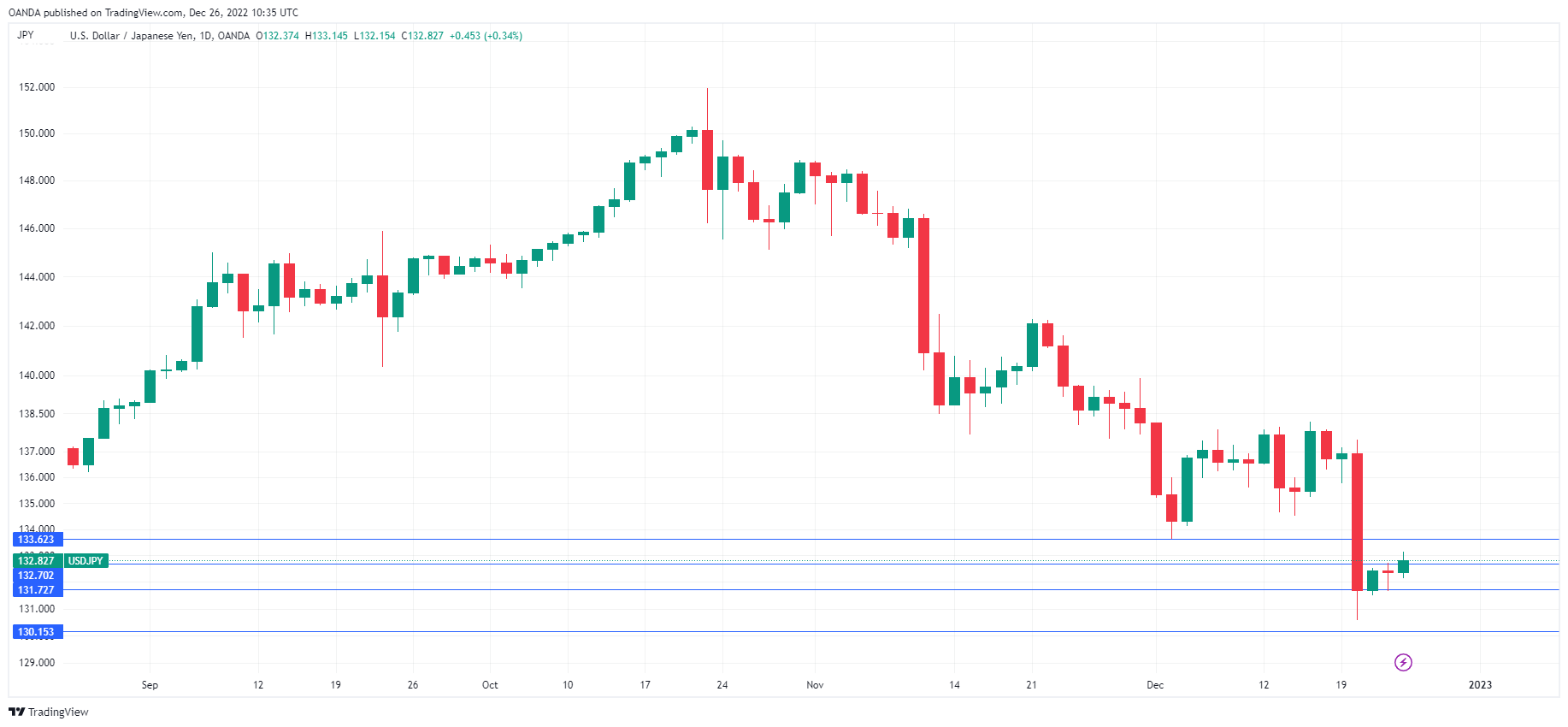With most financial markets closed on Monday, trading will be thin. Japanese markets are open, and USD/JPY has edged higher, trading at 132.82, up 0.34%.
Kuroda Plays Down the Yield Curve Move
The Bank of Japan announced a policy change last week, and the ramifications were massive for the Japanese yen, as USD/JPY jumped as much as 4.8% following the move. The BoJ widened the yield curve on long-term bonds from 0.25% to 0.50% but maintained the yield target at 0%. The tweak to the yield curve caught the markets napping, and the shocking move now has the markets buzzing about whether the BoJ is planning further policy changes to its ultra-low monetary policy.
Investors heard from the man himself earlier today, as BoJ Governor Kuroda gave a speech stating that last week’s move was not a prelude to withdrawing its massive stimulus program. He said widening the yield curve would enhance the Bank’s ultra-easy policy.
Kuroda reiterated his well-worn theme that the BoJ wants to see wages rise to hit its 2% inflation target in a “sustainable and stable manner” and plans to continue monetary easing through yield curve control. The key question is whether the markets are buying what Kuroda is selling.
Before last week, the markets were expecting an uneventful end to Kuroda’s decade at the helm of the BoJ, which ends in April. That view has been turned upside down after the yield curve tweak, and I expect the markets to be on guard for additional tightening moves, despite Kuroda’s insistence that it is business as usual at the BoJ.
US PCE Price Index falls
Last week showed further signs that inflation is falling in the US. The Fed’s preferred inflation gauge, the PCE Price Index for November, dropped to 5.5% y/y, down from 6.1%. As well, UoM inflation expectations slowed to 4.4% y/y in December, down from 4.6% a month earlier.
UoM Consumer Sentiment rose to 59.7, up from 59.1, as consumers are more confident about the economy. Although there is evidence that inflation is easing, strong wage growth and a robust labor market likely mean that the Fed is unlikely to change its view that interest rates will rise above 5% before peaking.

USD/JPY Technical
- USD/JPY is testing resistance at 132.70. Above, there is resistance at 133.62
- There is support at 131.72 and 130.15
